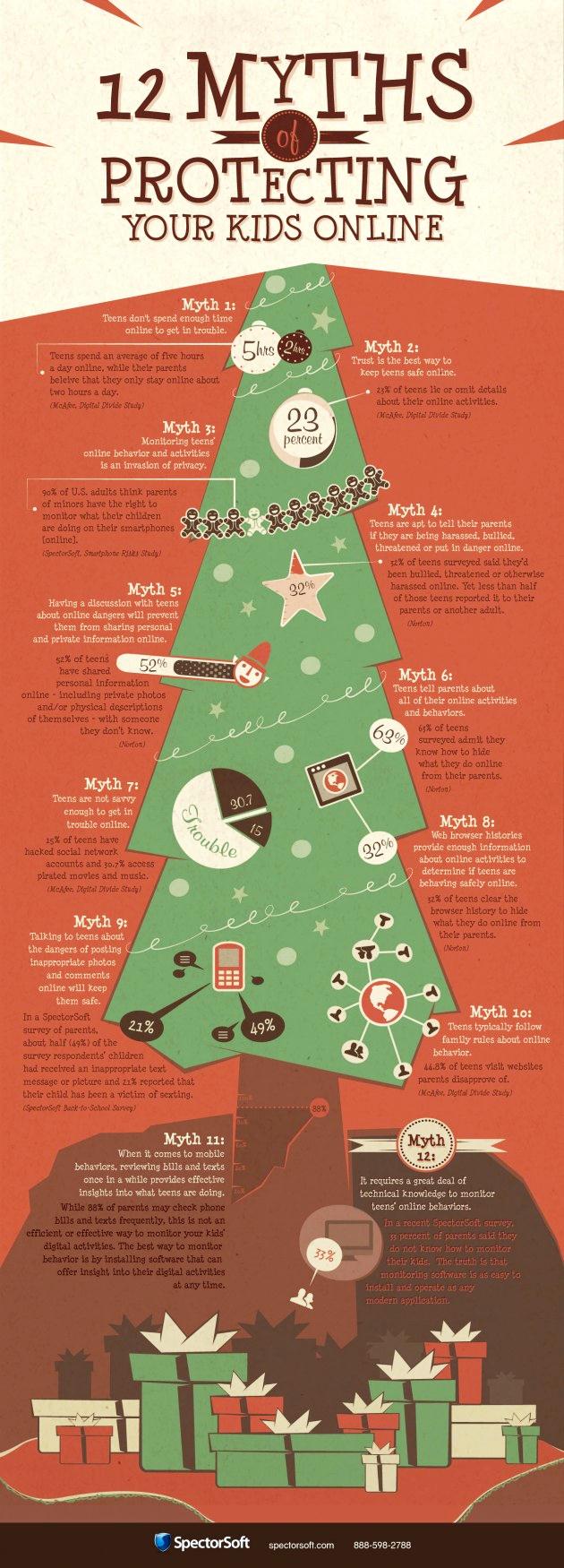This holiday season millions of kids will be getting an iPhone, iPad, Android phone or tablet, Kindle Fire, Nook and so on … and maybe a few will get a traditional PC or Mac. One of the first things they will do with it is get online. Maybe just for email, but if they are under 30 probably not.
For most kids getting online involves Twitter, Facebook, YouTube, Tumblr and so on … but also web chat areas, Homestuck and other fandoms, and so on.
Bottom line – kids are used to an always-online world … and predators are adapting to the changing trends faster than parents can learn what their kids are up to. As a result there is loads of misinformation and bad or outdated advice being passed on to parents … with the potential outcome being tragic.
While the old advice of ‘open communications’ and ‘extensive monitoring’ are the cornerstones to helping your kids stay safe, there are more ways you can let your guard down. Here are a dozen myths to watch out for:
Check out the full graphic and more info here!



Or use private browsing mode…..
How will this impact that many, many kids WILL give away information willingly and regardless of the advice we give them?
I almost wonder if people need I license to surf the way they need a license to drive. 😉 The heart of the matter is how much unrestricted access parents choose give their children in the first place and how to educate the public in general to foster a more secure online environment. I start by restricting my tween’s online time and have put his PC in our living room so there is no way he can easily access the internet willy-nilly unsupervised. Obviously this won’t work for everyone, though, and my example is one part of our protection schema.
Parents need to craft their own restrictions but owe it to themselves and their children to understand how online access should and should not be used. The big question: how to educate parents who might not be tech savvy and package such knowledge in such a way it is easily understandable, but I fear the genie is already out of the bottle with the rapid adoption and proliferation of smartphones, particularly as status symbols. Whereas in the workplace a lot of companies (hopefully) have security-minded IT teams to keep an eye on things, homes typically have no such staff to oversee and for security compliance as in the workplace, and I wonder how many families ironically rely on the tech-savvy kids to help run things, such that the foxes are guarding the hen house. Things like Parental Controls and OpenDNS can help, but as Mike said there are ways kids can still give out info despite our best efforts.
I know as my kids get older they will become more tech savvy and I will need to keep up with the changes, but luckily for me my kids are at a disadvantage as I’m sort of an IT George Smiley if you will. 😉